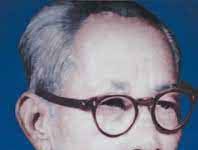King Abdullah bin Abdulaziz | Brief Biography
King Abdullah bin Abdulaziz
King Abdullah bin Abdulaziz Al Saud (1924-2015) was the King of Saudi Arabia from 2005 to 2015. He came to power after the death of King Fahd and ruled for nearly 10 years. During his reign, King Abdullah implemented several reforms aimed at modernizing the country, particularly in the fields of education, healthcare, and women’s rights.
Early Life and Education
King Abdullah bin Abdulaziz was born in Riyadh, Saudi Arabia in 1924. He was the son of King Abdulaziz, the founder of the modern Saudi state, and was one of his many sons. Abdullah received his early education in religion and tribal traditions and grew up in a family environment that valued service and duty to the nation.
Career
King Abdullah had a long and illustrious career in public service, starting at a young age as a governor and commander of the military. He served in various positions, including deputy governor of Riyadh, governor of Riyadh and later, the commander of the National Guard. He was also instrumental in the development of the country’s oil and infrastructure sectors, and was widely regarded as a visionary and a modernizer.
Reforms and Modernization
King Abdullah’s reign was marked by significant reforms aimed at modernizing the country. He introduced several measures to improve the education system, such as establishing universities for women and expanding scholarship programs for students. He also made significant investments in healthcare, building new hospitals and providing better access to healthcare for citizens.
King Abdullah was also a strong advocate for women’s rights and was the first Saudi Arabian monarch to appoint a female cabinet minister. He also permitted women to run and vote in local elections and launched initiatives aimed at improving the status of women in society.
Foreign Policy
King Abdullah was known for his strong and assertive foreign policy. He was a strong advocate for peace in the Middle East and was instrumental in bringing together various Arab states to form a united front against terrorism. He was also a strong ally of the United States and maintained close diplomatic relations with several Western countries.
Death and Legacy
King Abdullah passed away on January 23, 2015, at the age of 90. He was widely mourned both in Saudi Arabia and around the world and was remembered as a visionary leader who made significant contributions to the development and modernization of his country. 0 0 0.
Sources:
“King Abdullah bin Abdulaziz Al Saud”. The Biographical Dictionary of World Leaders.
“King Abdullah bin Abdulaziz”. The New York Times.
“King Abdullah of Saudi Arabia: A Reformer at Home and Abroad”. The Guardian.
“King Abdullah: Visionary Leader of Modern Saudi Arabia”. Al Jazeera.
“King Abdullah bin Abdulaziz Al Saud: A Visionary and Reformist Ruler”. The Diplomat. ***
N.B. The article originally belongs to the book ‘Brief Biographies of Eminent Monarchs‘ by Menonim Menonimus.
Books of Biography by M. Menonimus:
- The World Writers-Brief Biographies
- Introduction to World Writers
- Introduction to World Personalities
- Love of Reputed Persons
- Brief Biographies of Ancient Thinkers and Writers..
Additional Searches:











